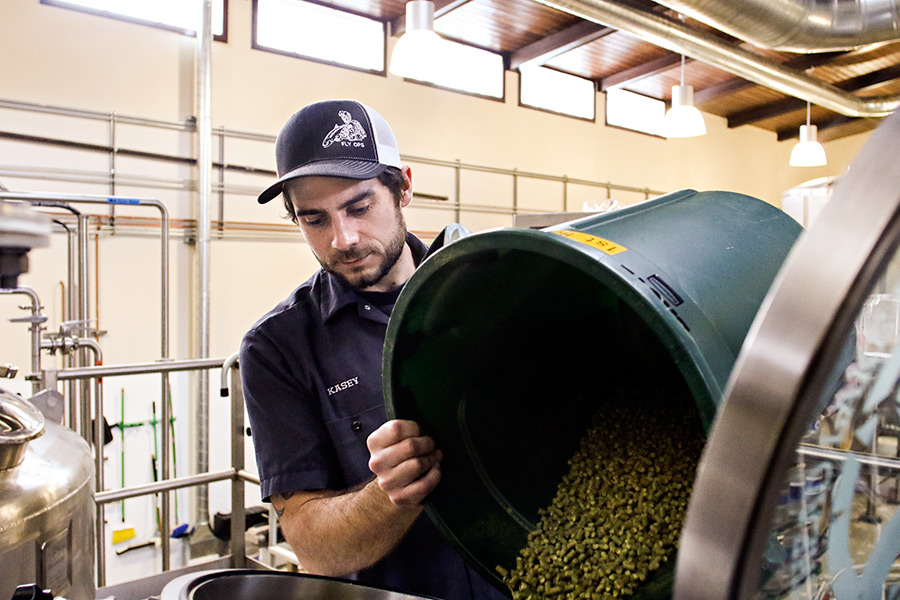Taking Beer to the Next Level
Craft beer advocates say legislation to raise production caps would help Montana breweries compete across the West
By Justin Franz
Seven years ago, Montana’s craft brewers produced 87,400 barrels of beer. By 2015, production had nearly doubled, according to the University of Montana’s Bureau of Business and Economic Research, to 163,200 barrels of beer, or a frothy 40.4 million pints.
The numbers reflect an explosion in the state’s craft beer scene, which now supports more than 60 breweries in 35 communities, including nine in Northwest Montana. Matt Leow, executive director of the Montana Brewers Association, said much of the local increase over the last five years can be attributed to new breweries opening in towns that previously did not have them.
In 2010, only Whitefish, Lakeside, Polson, and Woods Bay had local breweries. Since then, Kalispell, Columbia Falls, Bigfork, Eureka, and Libby have all joined the ranks of places you can find and enjoy a locally made brew.
Leow said the next phase of growth for the state’s beer scene is expanding the breweries’ reach regionally. While local grocery stores are stocked with craft beers from Colorado and Washington, Montana-made beers often don’t stray too far from home. That’s because of a production cap that brewers say is antiquated and stifling the growth of the beer scene.
Under current state laws, a brewery can only sell beer at a taproom when it annually produces less than 10,000 barrels of beer. Above that, the brewery can still have a taproom, but is not allowed to sell the beer. Big Sky Brewing in Missoula, which annually produces 43,000 barrels, has given away more than $4.2 million worth of beer in its taproom over the last decade.
A bill that recently passed the state House of Representatives would raise the production cap to 60,000 barrels annually. That means Montana breweries would be able to produce more beer while still selling it in their taprooms. Leow said increased production would have a ripple effect throughout the economy.
“The production cap has served as a disincentive to growth,” he said. “This bill to raise that cap is good for Montana brewers, it’s good for Montana agriculture and it’s good for Montana tourism.”
Leow said the number of people touring Montana to drink the state’s local beer is increasing, and the more people out of the state who know about the craft beer scene, the more they’ll want to visit.
“Every time you see a six-pack of Montana-made beer on a grocery store shelf out of state, it’s like a little billboard for the state,” he said.
David Brendgard, director of brewery operations at Flathead Lake Brewing Company, previously worked for Deschutes Brewery in Bend, Oregon, and said anything the state can do to support beer-related tourism is a good thing. He said places like Bend and Fort Collins, Colorado, have increased their standings as destinations because of the craft beer scene. He believes the same could happen in Montana.
Flathead Lake Brewing produces about 5,000 barrels a year, up from 1,000 three years ago. He said at the current rate of growth, the brewery would hit the 10,000-barrel limit within the next five years. If that occurred and the limit were not raised, it would mean the brewery could not sell its beer at its tap house in Woods Bay. Currently, about 50 percent of what Flathead Lake Brewing produces is canned and that could increase as it tries to expand its reach across the region.
Kalispell Brewing Company produced 630 barrels of beer in 2016, far below the current cap. But owner Cole Schneider said raising the limit would be good for his establishment because it would help spread the word about the state’s beer. Kalispell Brewing recently began canning some of its beers, and Schneider said he hopes to get his brews into more grocery stores around the state.
“Montana is building a reputation for great craft beer and anything that will help the industry as a whole is a good thing,” he said.